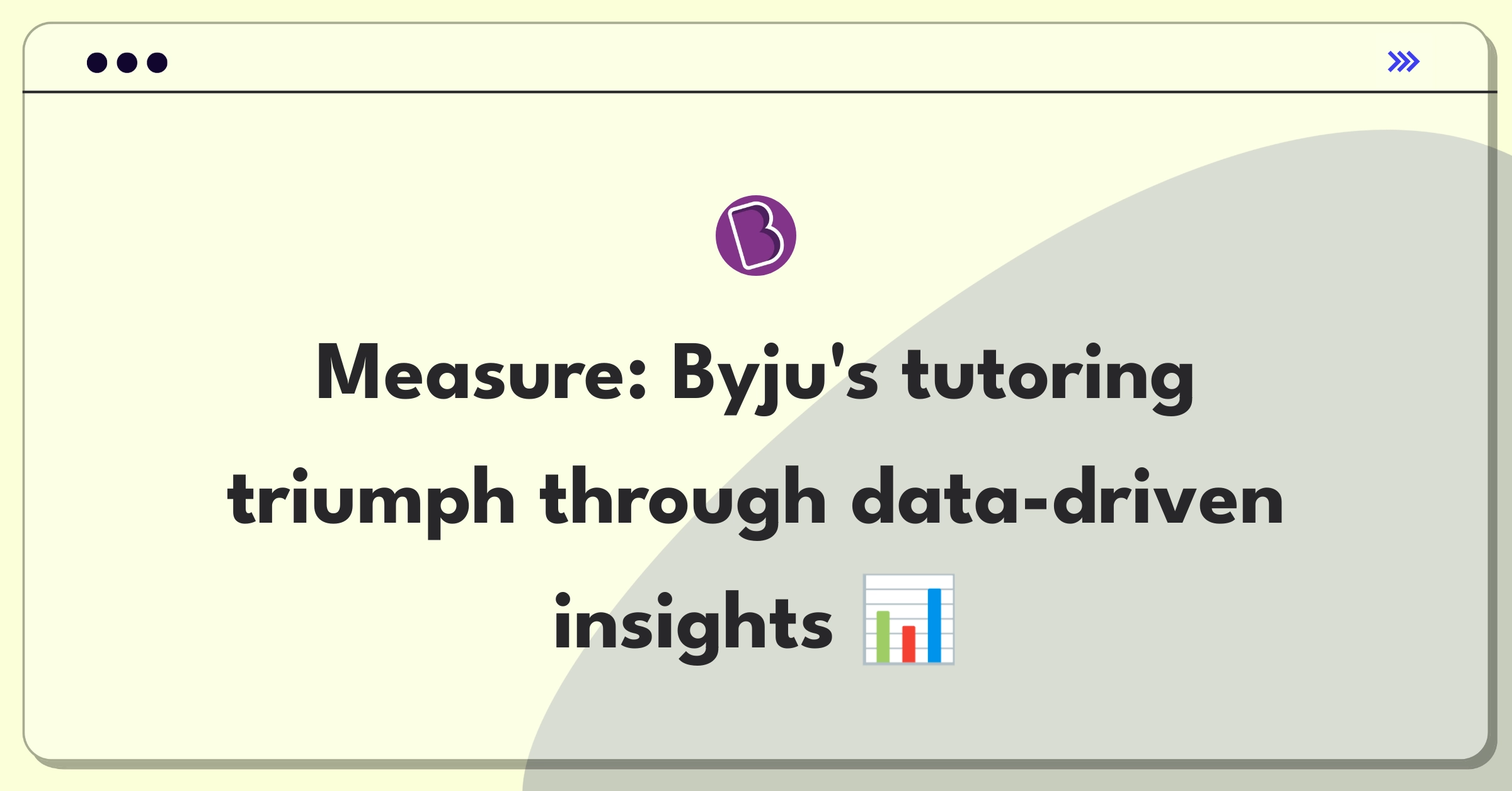Introduction
Measuring the success of Byju's online tutoring service requires a comprehensive approach that considers multiple stakeholders and various aspects of the product. To address this product success metrics challenge, I'll follow a structured framework covering core metrics, supporting indicators, and risk factors while considering all key stakeholders.
Framework Overview
I'll follow a simple success metrics framework covering product context, success metrics hierarchy.
Step 1
Product Context
Byju's online tutoring service is a digital platform that connects students with expert tutors for personalized learning experiences. The service caters to K-12 students, as well as those preparing for competitive exams. Key stakeholders include students, parents, tutors, and Byju's as a company.
The user flow typically involves:
- Students or parents signing up and selecting subjects/topics
- Matching with suitable tutors based on expertise and availability
- Scheduling and attending online tutoring sessions
- Completing assignments and assessments
- Receiving feedback and progress reports
This service aligns with Byju's broader strategy of providing comprehensive, personalized education solutions. Compared to competitors like Chegg or TutorMe, Byju's leverages its existing content library and brand recognition in the Indian market.
In terms of product lifecycle, the online tutoring service is in the growth stage, with potential for expansion into new markets and subject areas.
Subscribe to access the full answer
Monthly Plan
The perfect plan for PMs who are in the final leg of their interview preparation
$99 /month
- Access to 8,000+ PM Questions
- 10 AI resume reviews credits
- Access to company guides
- Basic email support
- Access to community Q&A
Yearly Plan
The ultimate plan for aspiring PMs, SPMs and those preparing for big-tech
$99 $33 /month
- Everything in monthly plan
- Priority queue for AI resume review
- Monthly/Weekly newsletters
- Access to premium features
- Priority response to requested question


.png)